Guiana and the Shadows of Empire
Guiana and the Shadows of Empire
Colonial and Cultural Negotiations at the Edge of the World
Joshua R. Hyles
LEXINGTON BOOKS
Lanham Boulder New York Toronto Plymouth, UK
Published by Lexington Books
A wholly owned subsidiary of The Rowman & Littlefield Publishing Group, Inc.
4501 Forbes Boulevard, Suite 200, Lanham, Maryland 20706
www.rowman.com
10 Thornbury Road, Plymouth PL6 7PP, United Kingdom
Copyright 2014 by Lexington Books
All rights reserved. No part of this book may be reproduced in any form or by any electronic or mechanical means, including information storage and retrieval systems, without written permission from the publisher, except by a reviewer who may quote passages in a review.
British Library Cataloguing in Publication Information Available
Library of Congress Cataloging-in-Publication Data
Hyles, Joshua R.
Guiana and the shadows of empire : colonial and cultural negotiations at the edge of the world / Joshua R. Hyles.
pages cm
Includes bibliographical references and index.
ISBN 978-0-7391-8779-1 (cloth : alk. paper) -- ISBN 978-0-7391-8780-7 (electronic)
1. Guiana--Colonization. 2. Guyana--History. 3. Suriname--History. 4. French Guiana--History. 5. Imperialism. I. Title.
F2351.H95 2014
988--dc23
2013032886
 TM The paper used in this publication meets the minimum requirements of American National Standard for Information Sciences Permanence of Paper for Printed Library Materials, ANSI/NISO Z39.48-1992.
TM The paper used in this publication meets the minimum requirements of American National Standard for Information Sciences Permanence of Paper for Printed Library Materials, ANSI/NISO Z39.48-1992.
Printed in the United States of America
To my daughter, Madison
for reminding me how joyful learning should be
List of Maps
List of Tables
Preface
Nowhere in the world can objective study of colonialism and its effects be more fruitful than in the Guianas, the region of three small states in northeastern South America. The purpose of this book is threefold. First, the history of these three Guianas, now known as Guyana, French Guiana, and Suriname, is considered generally as a single unit, emphasizing their similarities and regional homogeny when compared to other areas. Second, the study considers the administrative policies of each of the countrys colonizers, Britain, France, and the Netherlands, over the period from settlement to independence. Last, the work concentrates on current political and cultural situations in each country, linking these developments to the policies of imperial administrators in the previous decades. By doing so, this book hopes to show how an area that should have developed as a single polity could become a region of three very distinct cultures through the altering effects of colonialism.
Acknowledgments
The author would like to thank Dr. Joan Supplee, Dr. Tom Offit, and Dr. David Longfellow for their input and direction during the construction of this manuscript. Additionally, the author wishes to note with great appreciation the additional academic support provided by: Dr. Jeffrey Hamilton, Dr. Barry Hankins, Mr. Daniel Hoover, Dr. Julie Sweet, Dr. Michael Parrish, Dr. Keith Francis, Dr. Stephen Sloan, Dr. Eric Rust, and Dr. Vernon Hyles.
Lastly, this work would not be possible without the staunch support of my family and friends, who have supported my professional development through sacrifice and love, and to whom I owe many pages, whether or not they may desire to read them.
Chapter 1
Introduction
Somewhere in the world, on a spring afternoon, the sun warms a pristine stretch of white sandy beach. As gulls bank across the sea breeze and call to one another, waves roll endlessly in and out from the shore. A few miles inland from the water, the crackle of a well-worn loudspeaker and the resonant smack of a bat signal to the astute listener that a cricket match is in progress. The stadium lacks the lighting of more modern facilities, and looks almost the same as when it was built in 1884. Two hundred miles to the east, the singing and cheering of the fans is replaced by the sounds of a town hall meeting. Politicians outline problems and plans with their colleagues through rousing speeches in Dutch, echoing high in the tall ceiling of the hall. The simple white building in which the assembly meets is plain, but a sloping roof reminiscent of the government buildings of Asia forms an unexpected pinnacle. Just down the street, a cacophony of voices and accents clamor for attention in the city market, trading freshly baked pastries, flowers, and fruits. The wares are spread out often under old, intricately carved and decorated balconies and colonnades, hinting at their designs heritage in another time and place. Another two hundred miles farther east, new sounds come into range. Here, just inland from the same quiet shoreline, a woman negotiates with her local baker. She is delighted to discover that he has recently arrived here, just like her, and hails from the same neighborhood in Paris. She sorts through her coin purse of Euros to purchase a fresh baguette and some chicory-flavored coffee. Above her, in the deep blue cloudless sky, the exhaust trail of a rocket carrying a satellite for the European Space Agency is just beginning to fade.
If the coexistence of these sights and sounds in such a small geographic area is confusing, it should not be surprising. Few places in the world contain three significantly different cultures in such a small space. If forced to make an educated guess, most people would suggest a particularly metropolitan region of Western Europe as the only possible setting for these events. But in fact, these roles are regularly carried out not by Europeans, but by the residents of an isolated portion of northeastern South America. The aforementioned quiet coastline is the shore running from the mouth of the mighty Orinoco River eastward, hugging the margins of the Atlantic Ocean. The cricket match is being held in the Bourda Cricket Ground in Georgetown, Guyana, the only cricket test match facility in the entire continent. The town hall meeting takes place in nearby Paramaribo, Suriname in the National Assemblys headquarters, and the bread is being haggled over just down the shore in Cayenne, French Guiana by full citizens of France. These incidents are not accidental or anomalous; they are the direct result of a complex and unique history that has formed the region known as the Guianas, one of the most unique places in the world. The story of the Guianas has not enjoyed the degree of attention from scholars or writers afforded to Africa or Asia, but it has at least as much to teach us. Centuries of varied European influence have affected the residents of these three small countries in immense and fascinating ways, and their unique story deserves to be told.
But history is not an easy subject, and it involves more than simply telling a good story. It demands organization and analysis. Yet, much to the chagrin of many of its students, the human story cannot be neatly delineated or categorized. Though its books separate time into chapters, periods and eras, these spatial measurements are hardly rigid and always ill-defined. For example, defining the time of Colonialism or the Colonial Period with any degree of precision approaches impossibility. Ask most casual students of history when to mark the End of Colonialism on a timeline, and many will point to the 1960s, an era when a large portion of Southeast Asia and Africa declared independence and joined the United Nations as equals. Those interested in the study of the Americas may even suggest the 1980s, when a considerable number of Caribbean islands experienced the same transition. As far as place is concerned, few would suggest using this quiet coastline of South America as the measuring stick or the defining place. But those few, armed with knowledge of the history and the present of this region, could just as easily suggest that the Colonial Period lives on in this remote corner of the world, and that it has not yet ended.
Next page
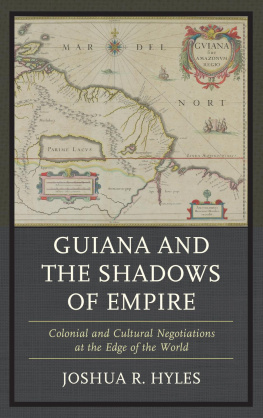

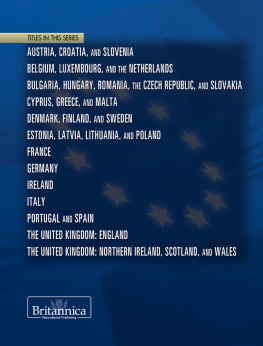

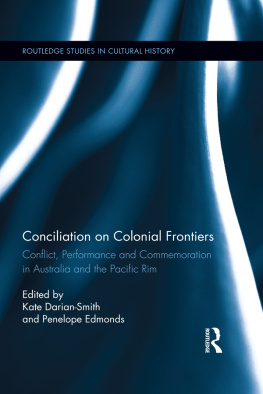
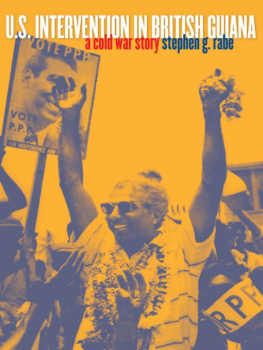
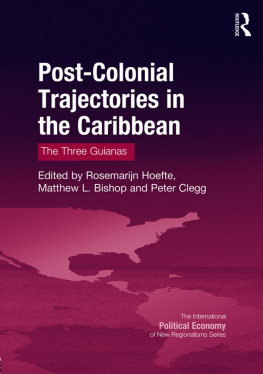

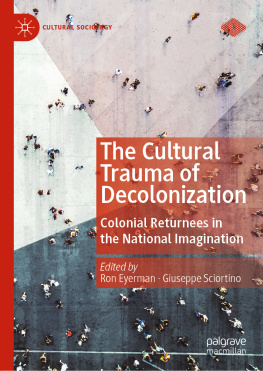
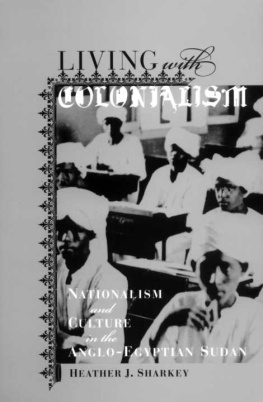
 TM The paper used in this publication meets the minimum requirements of American National Standard for Information Sciences Permanence of Paper for Printed Library Materials, ANSI/NISO Z39.48-1992.
TM The paper used in this publication meets the minimum requirements of American National Standard for Information Sciences Permanence of Paper for Printed Library Materials, ANSI/NISO Z39.48-1992.